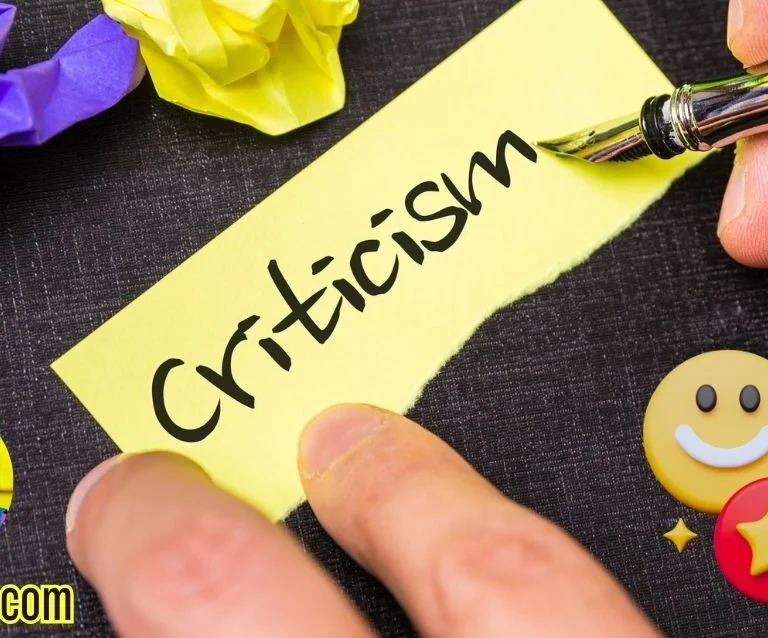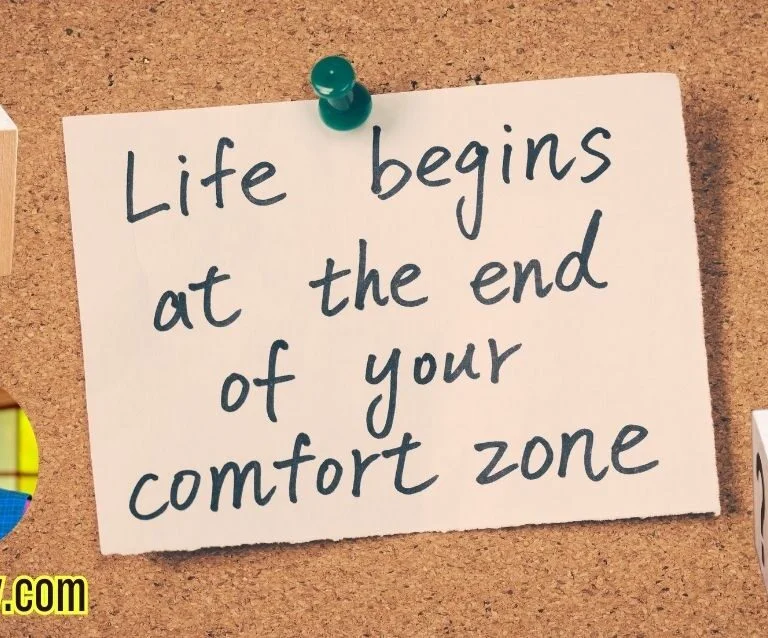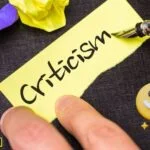The Importance of Focus in Achieving Success
In today’s fast-paced and often distracting environment, the ability to concentrate has become a unique asset. Focus is essential for achieving success across various dimensions of life, including personal goals, career progression, and overall productivity. When individuals maintain a strong focus, they can direct their attention and efforts toward the objectives that matter most, resulting in more deliberate and effective actions.
One of the primary benefits of sustaining focus is the enhancement of productivity. With numerous distractions, such as social media and constant notifications, the challenge lies in minimizing interruptions that can derail progress. By establishing a clear focus, individuals can silence the background noise and devote their mental resources to high-priority tasks. This concentrated effort leads to increased efficiency, enabling one to accomplish more in a shorter period. Quality tends to improve as well, as focused attention enhances the outcomes of work.
Moreover, focus plays a pivotal role in personal development. When individuals are clear about their goals, whether they relate to health, education, or relationships, they can better align their choices and actions with those objectives. By concentrating on desired outcomes, individuals can cultivate the necessary skills and habits that foster growth. This alignment not only accelerates the pursuit of personal ambitions but also yields a more fulfilling life experience.
On a professional level, the ability to concentrate on tasks and projects is paramount for career advancement. In a competitive job market, employees who exhibit strong focus often stand out, as they tend to deliver superior results. Focused individuals are more likely to cultivate strong work habits, demonstrate resilience in the face of challenges, and contribute meaningfully to their teams. As a result, the practice of maintaining focus emerges as a critical component of achieving success in both personal and professional lives.
Identifying Common Distractions
In today’s fast-paced digital environment, distractions are abundant, making it increasingly difficult for individuals to maintain focus and achieve their personal and professional goals. One of the most significant distractions comes in the form of social media. Platforms designed for engagement can quickly consume hours of time, luring users into a cycle of mindless scrolling that fragments attention and diverts focus from more productive activities. Notifications from these platforms further exacerbate the issue, often prompting users to check their devices incessantly. Each beep or vibrate can throw off concentration, creating a fragmented work process and lowering overall productivity.
Multi-tasking is another common pitfall that many individuals consider beneficial. However, research suggests that attempting to juggle multiple tasks simultaneously can lead to a decrease in focus and efficiency. The human brain is not wired to handle several cognitive tasks at once effectively; instead, it switches rapidly between tasks, leading to cognitive overload and diminished performance. This tendency, driven by a culture that often glorifies busyness, is detrimental to achieving true focus.
The environment also plays a critical role in determining an individual’s ability to concentrate. Various environmental factors, such as noise levels, visual clutter, and personal discomfort, can heavily impact focus. A noisy workplace or a crowded home can serve as constant interruptions, making it challenging to engage deeply in tasks. By recognizing these common distractions—be it social media, overextending oneself through multi-tasking, or an unsuitable work environment—individuals can begin to take deliberate steps toward minimizing their effects. Awareness of these distractions is the first step in cultivating enduring focus and productivity.
Setting Clear Goals to Maintain Focus
In an increasingly distracted world, the ability to maintain focus hinges on the establishment of clear and achievable goals. Goals serve as a guiding beacon, enabling individuals to channel their energy and attention toward defined outcomes in both personal and professional realms. This not only enhances productivity but also fosters a sense of purpose, making it essential to develop and refine goal-setting strategies.
To create effective goals, utilizing the SMART criteria is highly recommended. SMART goals are Specific, Measurable, Achievable, Relevant, and Time-bound. Each component plays a critical role in ensuring that the goals set are not only inspiring but also realistic. A specific goal delineates a clear target, avoiding vague language that may lead to confusion. For instance, instead of aiming to ‘get fit’, a more specific objective could be ‘to run a 5k in under 30 minutes within the next three months’.
Measurability is equally significant as it allows for tracking progress. A measurable goal needs clear criteria to evaluate progress. This may involve metrics, such as tracking weekly exercise sessions or monitoring weight loss, providing tangible benchmarks along the journey. Moreover, the goal should be achievable; setting overly ambitious objectives may lead to frustration. Instead, individuals should consider their current capabilities and aspirations, ensuring that goals push them but remain within reach.
Relevance aligns with personal values and long-term aspirations. A goal may be well-structured, but it should resonate with one’s interests and life purpose to foster motivation. Finally, setting a time frame encourages urgency and commitment. Specifying a completion date not only helps prioritize tasks but also provides a structured timeline within which to achieve these goals. By applying the SMART criteria, individuals can systematically define and pursue their goals, staying focused amidst the distractions of everyday life.
Creating a Distraction-Free Environment
In today’s fast-paced world, cultivating a distraction-free environment is crucial for enhancing focus and productivity. A tidy workspace is often the first step towards minimizing distractions. Research indicates that clutter can lead to increased stress and decreased efficiency, thereby impairing one’s ability to concentrate on tasks. Keeping your space organized allows for a clearer mind, enabling you to channel your mental energy more effectively towards your work.
Designated work zones also play a significant role in fostering an environment conducive to focus. By creating specific areas dedicated to particular tasks, individuals can mentally associate these spaces with heightened productivity. For instance, having a separate area for focus-intensive work, such as writing or studying, can lead to improved concentration levels. This spatial division helps in reducing the urge to multitask, as the mind is cued to the purpose of each zone.
Technology offers various tools to assist in blocking distractions, making the creation of a focused environment more achievable. Applications designed to limit notifications or restrict access to distracting websites can significantly enhance concentration levels. Additionally, utilizing noise-canceling headphones or white noise machines allows individuals to maintain a tranquil atmosphere, free from intrusive sounds. These technological solutions not only aid in managing environmental distractions but also help in sustaining a mental state that is conducive to deep concentration.
Furthermore, ensuring that your workspace is both quiet and comfortable contributes to sustaining focus. Comfortable seating and adequate lighting can dramatically affect how effectively one behaves in their designated work zone. A well-set-up environment not only invites productivity but also promotes a state of mind where focus can thrive. By adopting these strategies, individuals can cultivate a distraction-free environment that enhances their ability to concentrate and achieve their goals.
Developing a Focus Routine
In an age where distractions are abundant, establishing a daily routine that prioritizes focus and concentration is essential for achieving success. A well-structured focus routine not only helps in managing time effectively but also enhances mental clarity and stamina, enabling individuals to devote their energies to high-priority tasks. One effective technique that can be incorporated is time blocking. This method involves allocating specific blocks of time to different tasks throughout the day, which creates a clear roadmap for productivity. By setting aside dedicated periods for focused work, it becomes easier to eliminate distractions and immerse oneself in the task at hand.
Another powerful method worth considering is the Pomodoro Technique. This technique consists of working in short, focused intervals (typically 25 minutes) followed by a brief break (5 minutes). Such intervals encourage sustained attention while also allowing for regular moments of rest to recharge the mind. After completing four cycles, a longer break of about 15-30 minutes can be taken. By adhering to this structure, individuals can maintain their concentration over longer periods, thus enhancing overall productivity.
In addition to these techniques, incorporating regular breaks into the daily routine is crucial. Scientific studies have shown that taking time away from work helps prevent burnout and improves cognitive function. Whether it is a quick walk, stretching, or practicing mindfulness, these breaks serve as a reset for the mind and can dramatically improve focus when returning to work. By implementing a focus routine that includes time blocking, the Pomodoro Technique, and regular breaks, individuals can create an environment conducive to concentrated effort, ultimately fostering better outcomes in a world full of distractions.
Mindfulness and Focus: Techniques to Enhance Concentration
In a world increasingly characterized by distractions, enhancing concentration has become a priority for many individuals seeking success. Mindfulness techniques have emerged as effective strategies for improving focus and cultivating a present-moment awareness that mitigates the impact of distractions. Meditation is one of the foremost practices recognized for its potential to sharpen attention and enhance cognitive endurance. Engaging in regular meditation sessions, even if brief, can train the mind to remain anchored in the present, reducing the tendency for wandering thoughts that dilute concentration.
Deep breathing exercises also play a pivotal role in enhancing focus. By intentionally slowing down the breath, individuals can activate their parasympathetic nervous system, promoting a state of calmness conducive to concentration. A simple yet effective technique involves inhaling deeply through the nose for a count of four, holding the breath for four counts, and then exhaling slowly through the mouth. This practice not only relaxes the mind but also creates a mental space where focus can thrive.
Mindfulness exercises, such as mindful observation and body scans, further support the enhancement of concentration. Mindful observation encourages individuals to pay attention to their surroundings, engaging with sights, sounds, and sensations without judgment. This practice fosters an awareness that can sharpen focus over time. Meanwhile, body scans involve directing attention to various parts of the body, promoting a deeper connection between mind and body, which is essential in reducing scattered thoughts.
Incorporating these mindfulness techniques into daily routines can steadily improve focus and concentration. The benefits extend beyond immediate mental clarity; sustained practice creates a resilience in the face of distractions, allowing for a more profound engagement with tasks at hand. As individuals consistently apply these approaches, they may find themselves not only more focused but better equipped to navigate the complexities of modern life.
Leveraging Technology to Improve Focus
In today’s fast-paced digital environment, technology plays a pivotal role in shaping our ability to maintain focus. While various technological advancements can contribute to distractions, notably through incessant notifications and endless content consumption, they also offer innovative solutions designed to enhance productivity and foster sustained concentration. Understanding how to leverage these tools effectively can significantly impact our success in achieving focus.
For instance, website blockers, such as Cold Turkey and Freedom, serve as invaluable resources in minimizing distractions by preventing access to specific websites that may detract from important tasks. By situating a barrier between ourselves and potential digital diversions, these applications allow users to reclaim their time and devote their attention to more pressing priorities. Additionally, techniques such as the Pomodoro Technique can be simplified through specialized timer apps that encourage segmented work periods, promoting a structured approach to productivity.
Task management applications, like Todoist and Trello, also facilitate improved focus. These platforms enable users to organize their tasks visually and prioritize effectively. By breaking down larger projects into manageable segments, individuals can maintain clarity on their objectives, thereby enhancing overall concentration. Synchronizing these tasks with calendar applications ensures structured scheduling, mitigating the likelihood of feeling overwhelmed. Furthermore, integrating focus-enhancing music or ambient sound applications can create an auditory environment conducive to deep work.
However, it is essential to strike a balance between utilizing technology as a tool for improved focus and becoming overly reliant on it. Mindfulness practices and techniques promoting self-awareness can also play a critical role in maintaining focus. By intentionally setting boundaries around technology use, individuals can cultivate a more balanced approach, ultimately leading to increased productivity and personal success in a world fraught with distractions.
Building Your Focus Skills Over Time
Focus is often perceived as a natural ability, but it is, in fact, a skill that can be cultivated and refined over time. Developing focus requires intentional practice and a systematic approach to enhance concentration and diminish distractions in both personal and professional environments. By employing various strategies, individuals can progressively build their focus skills.
One effective method for enhancing focus is to start with small tasks. Begin by selecting short and manageable activities that require concentration. This initial step can be as simple as reading for ten minutes or completing a brief work assignment. As individuals successfully engage with these smaller tasks, they create a foundation upon which they can gradually increase the difficulty and duration of their focus sessions. This incremental challenge helps build confidence and stamina in maintaining attention over longer periods.
Another essential strategy is to set specific goals and track progress. By establishing clear, achievable objectives, individuals can create a roadmap for their focus improvement journey. For instance, retaining focus for an additional five minutes each week introduces gradual progress that is both challenging and attainable. Journaling or using digital applications to track time spent on focused activities allows individuals to visualize their advancements, reinforcing their motivation.
Additionally, incorporating mindfulness techniques can significantly aid in focus development. Practicing mindfulness through meditation or short breathing exercises can enhance one’s ability to center attention and calm the mind before engaging in tasks. This practice not only fosters better concentration but also equips individuals with strategies to redirect their thoughts when distractions arise.
By consistently applying these strategies, individuals can cultivate a robust skill set focused on enhancing concentration, ultimately leading to greater success in a world filled with distractions.
The Value of Sustained Focus
In the current fast-paced and distraction-rich environment, the ability to maintain sustained focus emerges as a rare yet invaluable currency for achieving success. Throughout this discussion, we have examined various strategies that can effectively enhance one’s capacity to focus. These include setting clear goals, minimizing distractions, adopting mindfulness practices, and prioritizing tasks. Integrating these methods into daily routines can significantly improve productivity and facilitate a more fulfilling professional and personal life.
The importance of focus cannot be overstated; it allows individuals to allocate their mental resources effectively, enabling deeper engagement with tasks and leading to higher-quality outcomes. Moreover, cultivating sustained attention fosters resilience and a sense of accomplishment. As people harness their ability to focus, they often find that they can tackle complex challenges more efficiently, resulting in notable advancements in their careers and overall well-being.
Committing to a journey centered on focus requires discipline and ongoing self-assessment. It entails being aware of one’s habits and the environment that influences productivity. By fostering an atmosphere conducive to concentrating on meaningful tasks, individuals can enhance their work and personal lives. Moreover, sharing insights and progress with others can not only strengthen one’s own commitment but also inspire those around them to value the power of focus.
Ultimately, the pursuit of sustained focus as a rare currency of success is a journey worth undertaking. The strategies outlined serve as practical tools to mitigate distractions and harness attention, shaping a more intentional and productive lifestyle. Embracing the significance of focus is crucial in navigating the complexities of modern existence, unlocking pathways to achievement and satisfaction.









